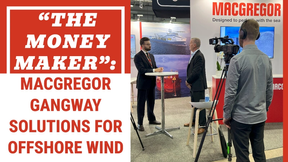High-Yield Skipping Bonds: A Better Mouse-Trap, Or Just A Better Trap?
But perhaps a more basic question to ask is, should these bond issues be brought to market in the first place? Who determines the credit worthiness and future viability of these shipping companies? While the ratings agencies play a role in this regard, and they have been conservative and even discouraging in their assessments, the major influence has been the underwriters. And the underwriters have certainly brought public the bonds of some very strong companies strong financially, operationally and managerially. But they have also brought public bonds of some companies that are weak candidates indeed when measured against the ongoing dynamics of the shipping business. How can this happen? I believe that the underwriters simply do not understand how the shipping business works.
The shipping business has been neglected by the securities markets for years and as a result the level of understanding of shipping within the securities community is low.
But, now that shipping has become, at least for the moment, a fashionable investment, underwriters reason that shipping is a business like any other and can be treated like any other. But shipping has many aspects, particularly its strongly cyclical nature, that make it different from other businesses. Because underwriters are not aware of these aspects they cannot differentiate between a current rosy financial picture that is unlikely to be sustained and a situation of strength that will be maintained into the future. Underwriters reject this criticism out of hand, but there is evidence that they are wrong. For example, a few underwriters stirred up a great deal of controversy recently about the possibility of inflated ship valuations and their effect on investment analysis. While inflated valuations may occasionally mask fraud, ship valuations really play a minor role in investment evaluation, where the emphasis is rightly placed on cash flow and earning power. Sadly, underwriters often don't get the answers that they need because they don't know the right questions to ask.
At a recent shipping meeting, the head of shipping of a major bank thanked an underwriter's representative for taking on risks that he would not want to assume. Metaphorically, it may be time to batten down the hatches.
Sydney P. Levine is the president of Shipping Intelligence, Inc., a maritime economic consulting firm located in New York. He may be reached at 25 West 43 Street. New York, NY 10036; tel: (212) 997-0966; fax: (212) 997-1105; email: [email protected]; WWW.PANIX.COM/~SPL.







